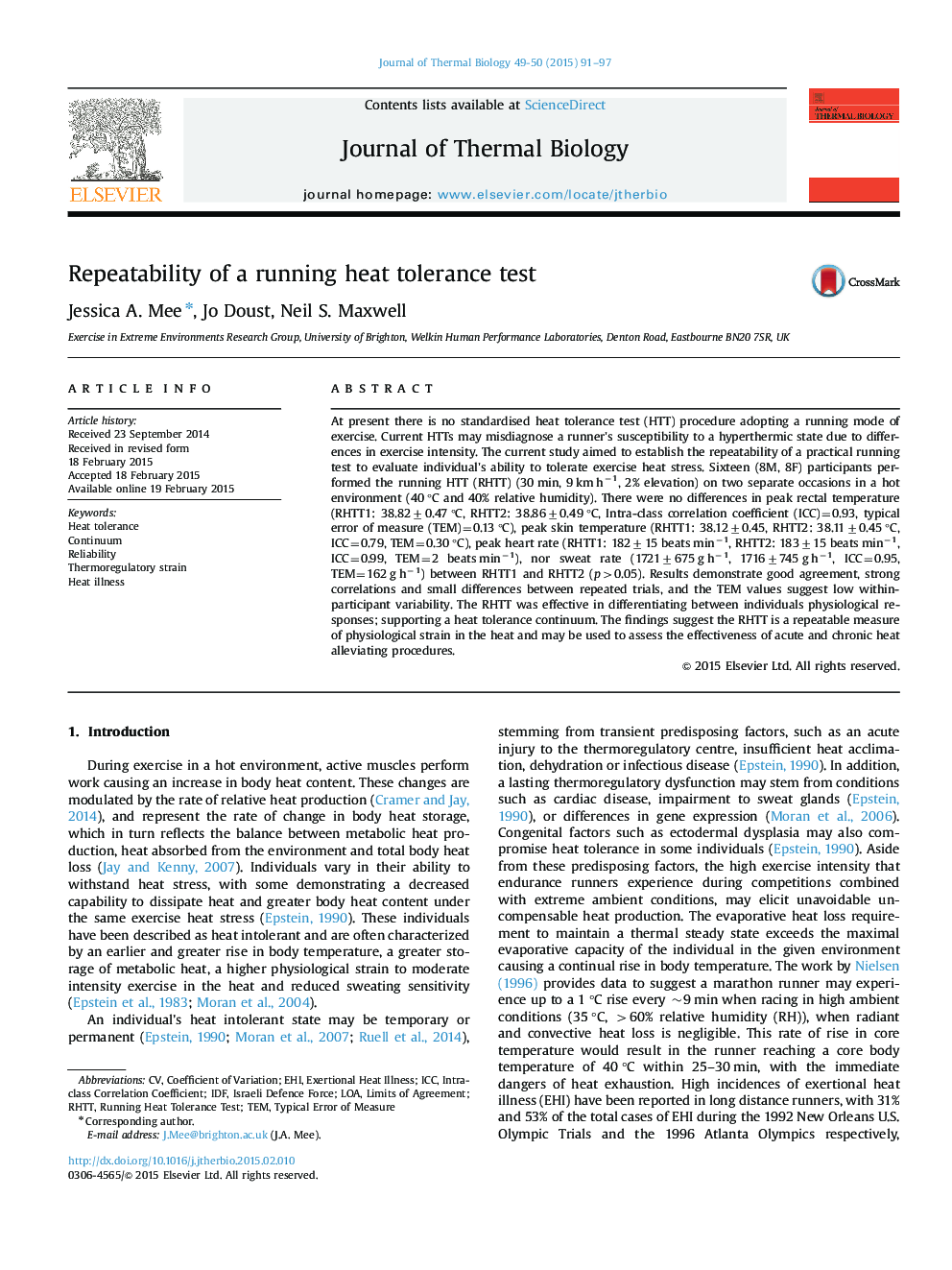| Article ID | Journal | Published Year | Pages | File Type |
|---|---|---|---|---|
| 2842762 | Journal of Thermal Biology | 2015 | 7 Pages |
•The repeatability of the running heat tolerance test (RHTT) was assessed.•The RHTT has strong correlations and small differences in markers of heat tolerance.•A heat tolerance continuum best describes individual's response to exercise heat exposure.•The RHTT is an appropriate tool to assess heat tolerance when using repeated trials.
At present there is no standardised heat tolerance test (HTT) procedure adopting a running mode of exercise. Current HTTs may misdiagnose a runner's susceptibility to a hyperthermic state due to differences in exercise intensity. The current study aimed to establish the repeatability of a practical running test to evaluate individual's ability to tolerate exercise heat stress. Sixteen (8M, 8F) participants performed the running HTT (RHTT) (30 min, 9 km h−1, 2% elevation) on two separate occasions in a hot environment (40 °C and 40% relative humidity). There were no differences in peak rectal temperature (RHTT1: 38.82±0.47 °C, RHTT2: 38.86±0.49 °C, Intra-class correlation coefficient (ICC)=0.93, typical error of measure (TEM)=0.13 °C), peak skin temperature (RHTT1: 38.12±0.45, RHTT2: 38.11±0.45 °C, ICC=0.79, TEM=0.30 °C), peak heart rate (RHTT1: 182±15 beats min−1, RHTT2: 183±15 beats min−1, ICC=0.99, TEM=2 beats min−1), nor sweat rate (1721±675 g h−1, 1716±745 g h−1, ICC=0.95, TEM=162 g h−1) between RHTT1 and RHTT2 (p>0.05). Results demonstrate good agreement, strong correlations and small differences between repeated trials, and the TEM values suggest low within-participant variability. The RHTT was effective in differentiating between individuals physiological responses; supporting a heat tolerance continuum. The findings suggest the RHTT is a repeatable measure of physiological strain in the heat and may be used to assess the effectiveness of acute and chronic heat alleviating procedures.
